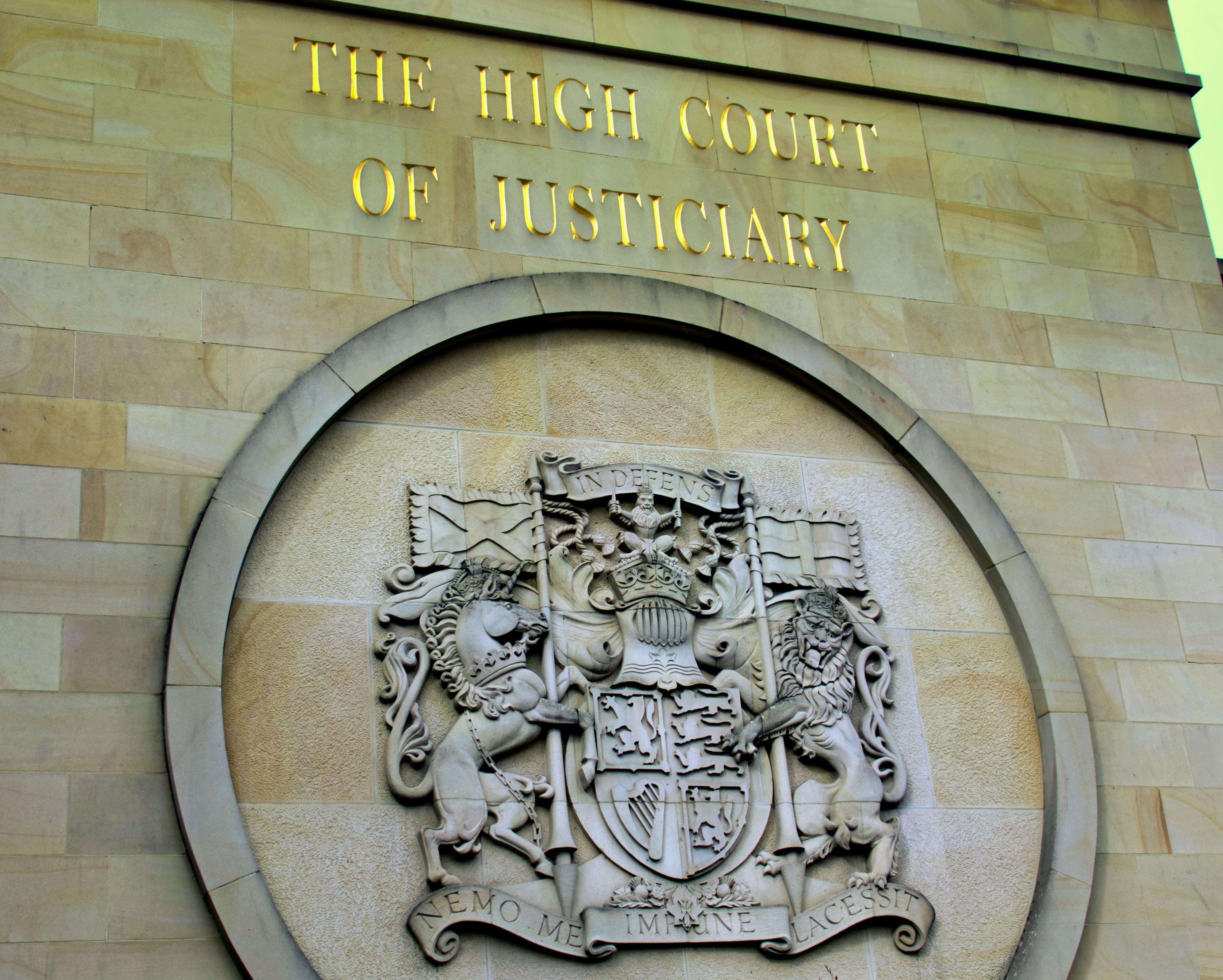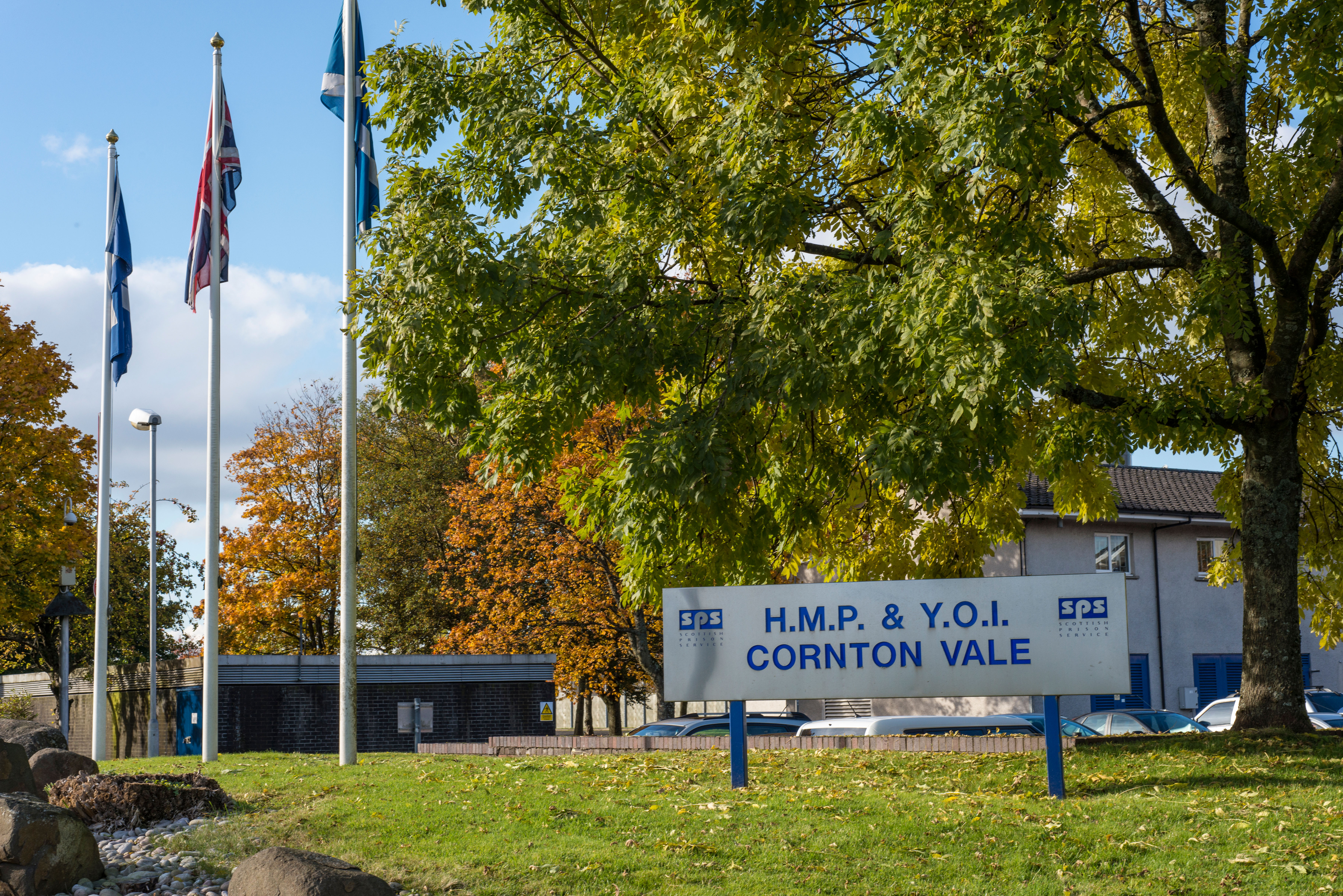Justice on trial: The challenges facing Scotland's courts, prisons and police
The new Cabinet Secretary for Justice Angela Constance has held seven ministerial positions prior to this one, including drugs policy, education and communities. She’ll need all that experience as she takes on a portfolio defined by long-standing challenges.
A struggling police service, crowded prisons, high numbers of prisoners on remand, court backlogs, a rise in recorded sexual offences and violent crime, and a crisis in legal aid: these are just some of the issues she must grapple with.
First the police. Last month the Chief Constable of Police Scotland, Iain Livingstone, announced he was leaving two years earlier than expected, after warning that “hard choices” would be necessary following a tight budget settlement. In a report to the Scottish Police Authority, he stated that Police Scotland‘s position was “unsustainable in the long-term and detracts from the ability to intervene effectively at the critical end of risk and harm”.
General Secretary of the Scottish Police Federation David Kennedy echoes those sentiments speaking to Holyrood, saying that the budget constraints are probably the worst he’s seen in 27 years as an officer.
The Scottish prison population, meanwhile, is relatively stable at around 7,300 but represents the highest per capita incarceration rate in the UK and is substantially higher than in most EU countries. There has been a marked increase since 2020 in the numbers held on remand and the length of time individuals spend on remand, with numbers reaching record levels last year.
Linked to this are ongoing court backlogs, which existed prior to the pandemic but were made worse by it. The most essential court business continued during the pandemic, and substantial efforts were made to move trials and other court business online, but major backlogs developed.
The Scottish Courts and Tribunal Service has been working to reduce it so that there are no more than 20,000 scheduled cases being prepared for trial. The number peaked in January 2022 at over 43,000 and has since been cut substantially, but it’s likely to take another year before the Covid-related backlog of summary trials (for lesser offences) is cleared and a further two years for solemn business (the most serious cases).
When cases are finally resolved, there is ongoing concern about sentencing. It’s 13 years since a presumption against sentences of under three months was first introduced, and four years since that was extended to sentences of under a year, by then justice minister Humza Yousaf.
Community-based alternatives to custody, however, are still used less than MSPs, campaigners or criminologists would like.
Meanwhile, there are long-standing concerns in the legal profession about underpayment for lawyers working in legal aid, causing solicitors to leave the legal aid system “in droves”, with knock-on effects for access to justice.
And the rate of some types of crime is on the rise. Recorded crime dropped overall by three per cent in the year to September, but that was driven by a massive decrease in crimes relating to coronavirus legislation. Other types of recorded crime actually rose collectively by three per cent, though crime rates in Scotland are still at one of the lowest levels since records began nearly 50 years ago.

In particular, there was a five per cent rise in non-sexual crimes of violence compared to four years ago (prior to the pandemic), and sexual crimes were up 10 per cent on four years ago, part of an ongoing long-term increase.
A greater confidence among victims about reporting crimes, the reporting of historic offences and cybercrime are some of the likely reasons for the increase in recorded sexual offences, though criminologists add that with all crime trends, it is important to “keep an eye” on known contextual factors that might be relevant, such as increasing financial hardship and social inequality due to the cost-of-living crisis.
So there is no shortage of pressing issues demanding Constance’s attention.
An early priority will be to address shortages in policing that have been causing growing alarm.
Figures last August showed that police numbers were at their lowest since the formation of the single national force 10 years ago. Even so, the police have been under pressure to help out other public services, with police cars sometimes being used to respond to ambulance calls and take people to hospital.
Kennedy is worried about possible cuts to civilian police workers, such as forensic examiners, and the depletion of certain police departments. He says: “Any cut to the service the police provides has a knock-on effect. If a job doesn’t get done by a civilian, they are pulling an officer off the street to fill the gap.
“The road traffic department is depleted. There are 180 vacancies which will not be filled.
“You’re going to see fewer bobbies on the beat. They are in cars, there aren’t enough to walk the streets.
“It’s a really bad time. We are the second largest force in the UK and don’t have body-worn video – that tells a story. The first UK service got it I think in 2002.
“The priority should be to have a truly properly funded service.”
Constance’s arrival has been met by justice experts’ calls to stay the course on penal reforms, particularly the drive to prevent crime and reoffending by reducing the number of people being sent to prison, and by tackling poverty and deprivation.
Dr Hannah Graham, senior lecturer in criminology at Stirling University and associate director of the Scottish Centre for Crime and Justice Research, notes that dealing with the court backlog remains a big issue.
She says: “The priority will be to get the Scottish justice system responding to the cases before it, but they will also need to take a longer-term view because only responding to the tyranny of the urgent could perpetuate certain cycles that have been happening long before Covid, but have been exacerbated, like high use of remand and high use of custodial sentences.
“A high punishment society does not necessarily make for the safest of societies. The intervention known to increase reoffending most effectively is to send someone to prison.”
The average daily remand population in Scottish prisons increased by 14 per cent last year. Howard League Scotland has called the situation a “scandal” and said Scotland was “completely out of step” both with the rest of the UK and with Europe on use of remand.
The Bail and Release from Custody Bill, currently in parliament, aims to reduce the number of prisoners on remand and give better support to those released from prison after serving a sentence.
Graham would like to see Constance acting to reduce the number of women in prison, something to which Yousaf as justice minister was committed. But Graham is clear that it should not just be women – a very small proportion of prisoners – who are diverted from prison.
She says: “In Scotland we have thousands of cases [of people] sentenced to prison for shoplifting every year and we have done for years. So you question someone being sentenced for serious violence, like perhaps murder or attempted murder, being put in the same facility alongside someone who might have a lengthy offending history for shoplifting, theft, maybe vandalism and breach of the peace.
“I believe for Humza Yousaf and others in the Scottish Government, there is a sense of momentum around changing the responses to women who have become criminalised.
“The important question that needs to be asked is, if we’re proud of Scotland taking a trauma-informed approach to women’s imprisonment and diverting women to communities because of their trauma, because of the poverty and inequality they face, because of the context of abuse that they might have encountered, why doesn’t that apply to men?”
On crime statistics, she says the drop in crime over the last 15 years is something to be “hopeful” about but stresses that it’s not experienced evenly, with deprived communities seeing less of a drop than affluent areas.

When it comes to prevention, she points to the value of youth work and community projects that promote social cohesion. “Surprise, surprise, things that support communities that are fairer and have better health are also the things that can be helpful around tackling issues of antisocial behaviour in ways that don’t always have to escalate towards the police and criminalisation.”
Building safer communities isn’t just a job for the justice secretary but for the housing, employment, health, social care and social security ministers, she adds. “It will take a whole cabinet approach and it will need leadership from Scotland’s first minister. So I’m personally excited that he understands justice issues and is not new to them.”
Will Linden, deputy director of the Scottish Violence Reduction Unit, stresses that youth work is essential to preventing crime and making communities healthier and safer.
He says: “Young people have been among the worst affected by the pandemic and the cost-of-living crisis. Nearly a quarter of children are living in poverty in Scotland. Youth services are lifelines for these extremely vulnerable young people.
“However, we are now seeing what Youth Link Scotland calls ‘deeply troubling’ cuts to services. If there’s nowhere for children to safely gather and find support, then we should not be surprised when they increasingly live in a virtual world where they are exposed to unregulated dangers which spill out into our communities.
“We know early intervention is the most effective and cost-efficient form of violence prevention. It’s time to move on from unproductive debates around ‘tough’ and ‘soft’ justice and follow the evidence. One report estimated youth work in the UK saves £3.2bn per year in public spending through decreased crime, increased employment and improved health outcomes.
“Youth work quite simply works and must be integral to any plan to reduce violence and make Scotland a safer country for all.”
Karyn McCluskey, chief executive of Community Justice Scotland, says she does not want to see a whole new approach from the new justice secretary, but a renewed effort to deliver what works: “There will be so many demands for the new ministers and the new first minister, so I don’t want the shiny nor new. I would like us to do more, much more, of the things that are already delivering change in justice in Scotland – because it is changing.
“Let’s not lose prevention. Let’s keep more young people out of the justice system – it’s delivering change. Let’s be ambitious for the future. Let’s divert many more people into drug, alcohol and other support services in the community, where we can, to prevent crime and help people into employment and wellbeing.
“Let’s embrace a community-first approach and keep people who are not yet tried or who pose little or no danger to the safety of fellow citizens, in their communities. Let’s aspire for a lower prison population and set a long-term plan about how to get there.
“Knowing there are problems in justice and understanding that there are solutions that are working are not opposing moral universes. Justice is complex and takes time to change. At the same time, we must take great care to talk to the public, to explain what and why we are doing things, to educate and inform.”
President of the Law Society of Scotland, Murray Etherington, stresses the importance of the forthcoming bill on criminal justice reform in “delivering a more person-centred approach to practices within the Scottish criminal justice system” though adds that any proposals must be proportionate and “maintain a fair and just criminal justice system for all those involved”. He adds that while £11m of funding announced by the Scottish Government to help alleviate the legal aid crisis is welcome, more needs to be done.
It’s a daunting to-do list.
Holyrood Newsletters
Holyrood provides comprehensive coverage of Scottish politics, offering award-winning reporting and analysis: Subscribe